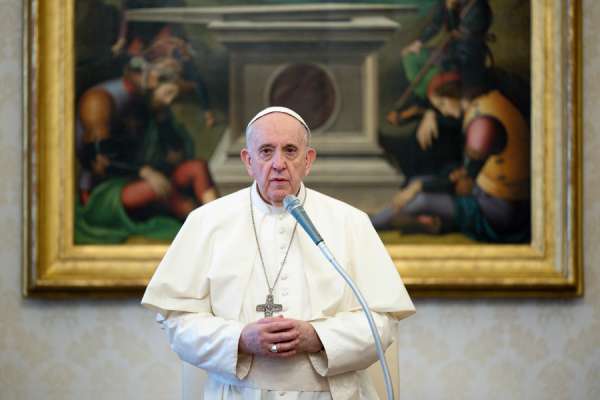Pope Francis requires bishops to have Vatican permission for new religious institutes

Pope Francis changed canon law to ask a bishop for permission from the Holy See before establishing a new religious institute in his diocese, further strengthening Vatican oversight during the process.
With a motu proprio of November 4, Pope Francis modified canon 579 of the Code of Canon Law, which concerns the erection of religious orders and congregations, indicated in the law of the Church as institutes of consecrated life and society of apostolic life.
The Vatican clarified in 2016 that by law the diocesan bishop was required to consult with the Apostolic See before granting canonical recognition to a new institute. The new canon provides for further oversight by the Vatican by requiring the bishop to have the prior written permission of the Apostolic See.
According to Pope Francis' apostolic letter "Authenticum charismatis", the change ensures that the Vatican accompanies bishops more closely in their discernment on the erection of a new religious order or congregation, and gives "the final judgment" on the decision to the Holy See .
The new text of the canon will come into force on 10 November.
The modification to canon 579 makes "the preventive control of the Holy See more evident", said Fr. This was said to CNA by Fernando Puig, deputy dean of canon law at the Pontifical University of the Holy Cross.
"In my opinion, the basis [of the law] has not changed," he said, adding that "it certainly decreases the autonomy of the bishops and there is a centralization of this competence in favor of Rome."
The reasons for the change, Puig explained, go back to a clarification of the interpretation of the law, requested by the Vatican Congregation for Institutes of Religious Life and Societies of Apostolic Life in 2016.
Pope Francis made it clear in May 2016 that, for validity, canon 579 required bishops to consult closely with the Vatican about their decision, even though it did not require them to obtain permission per se.
Writing in L'Osservatore Romano in June 2016, Archbishop José Rodríguez Carballo, secretary of the congregation, explained that the congregation has asked for clarification for the desire to prevent the “careless” establishment of religious institutes and societies.
According to Rodríguez, crises in religious institutes have included internal divisions and power struggles, abusive disciplinary measures or problems with authoritarian founders who see themselves as the "true fathers and masters of the charism".
Inadequate discernment by the bishops, Rodríguez said, had led the Vatican to have to intervene on problems that could have been avoided if they had been identified before giving canonical recognition to the institute or society.
In his motu proprio of November 4, Pope Francis stated that "the faithful have the right to be informed by their pastors on the authenticity of the charisms and on the integrity of those who present themselves as founders" of a new congregation or order.
"The Apostolic See", he continued, "has the task of accompanying Pastors in the process of discernment that leads to the ecclesial recognition of a new Institute or a new Society of diocesan right".
He cited the 1996 post-synodal apostolic exhortation of Pope John Paul II "Vita consecrata", according to which new religious institutes and societies "must be evaluated by the authority of the Church, which is responsible for the appropriate examination both to test the authenticity of the inspiring purpose and to avoid the excessive multiplication of similar institutions “.
Pope Francis said: "The new institutes of consecrated life and the new societies of apostolic life, therefore, must be officially recognized by the Apostolic See, which alone has the final judgment".